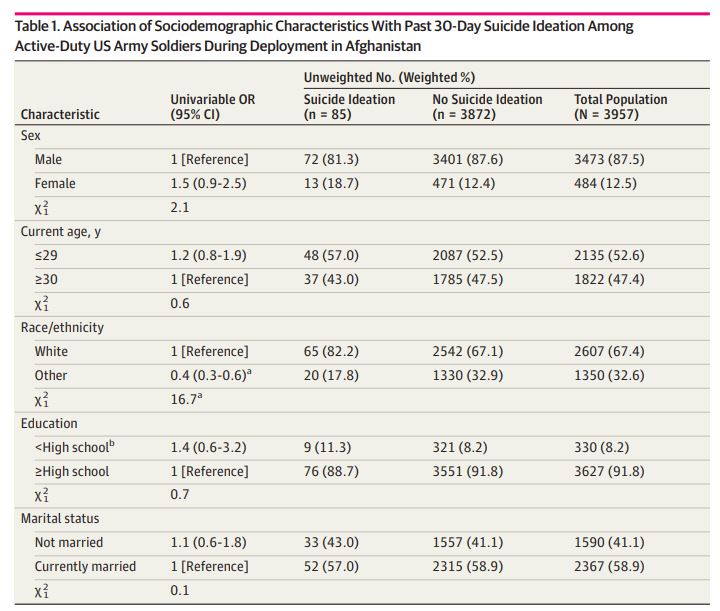Of the 3,957 U.S. Army soldiers deployed in Afghanistan who completed the Army Study to Assess Risk and Resilience in Servicemembers (weighted to represent all 87,032 soldiers serving in Afghanistan) at the midpoint of their deployment in 2012, 11.7 percent reported suicidal thoughts at some point in their lives, 3 percent within the past year and 1.9 percent within the past 30 days.
The pool was over 87 percent male and over 52 percent were age 29 or under.
After returning from deployment, 5 participants attempted suicide, with 2 attempting in Afghanistan and 3 in the 12 months after deployment. Among the 3,872 control soldiers, none attempted suicide in Afghanistan and 6 attempted within 12 months after deployment.

Source: 10.1001/jamanetworkopen.2019.19935
The midpoint of deployment was chosen for assessment of soldiers’ self-reported suicidal ideation and mental health disorders because that is when risk for suicide attempts appears to peak.
The authors report risk factors associated with recent suicidal thoughts during deployment included race (being white) and previous major depressive disorders and non-combat trauma. A substantial proportion of deployed soldiers with suicide ideation did not report any mental health disorders.





Comments